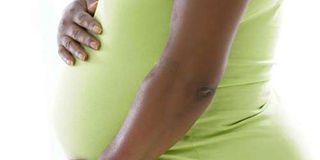Review law on abortion, MPs and rights groups tell ministry

In a two-day meeting held at a Nairobi hotel on May 2016, the Kenya Parliamentary Human Rights Association and 12 other groups listened to stories of women who resorted to backstreet clinics. PHOTO | FILE | NATION MEDIA GROUP
What you need to know:
In a two-day meeting held at a Nairobi hotel, the Kenya Parliamentary Human Rights Association and 12 other groups listened to stories of women who resorted to backstreet clinics.
The women blamed ignorance and lack of access to safe abortion clinics.
Apart from the women being made to drink detergents, the quacks also insert sticks, needles and hangers into their bodies.
Stories of women terminating pregnancies using methods as crude as ingesting large amounts of detergents persuaded civil society groups and members of Parliament to demand that the Health ministry re-publish abortion guidelines.
In a two-day meeting held at a Nairobi hotel, the Kenya Parliamentary Human Rights Association and 12 other groups listened to stories of women who resorted to backstreet clinics.
The women blamed ignorance and lack of access to safe abortion clinics.
Apart from the women being made to drink detergents, the quacks also insert sticks, needles and hangers into their bodies.
Among the groups that attended the meeting was Trust for Indigenous Culture and Health, National Gender and Equality Commission, Kenya National Commission on Human Rights, and Centre for Reproductive Rights.
Health workers at the forum said some pregnancies were terminated at very advanced stages, exposing the women to health risks and death.
After the meeting, Ndhiwa MP Agostino Neto committed himself to lobbying for the passing of the Reproductive Health Bill.
Kibra MP Ken Okoth said the loudest voices in the abortion debate were men yet abortion was killing women, greatly affecting family life.
Citing his constituency, Mr Okoth said men needed to reflect more on the debate.
“Men must be champions. Women do not make themselves pregnant,” said Mr Okoth.
“We must end this notion that abortion is a crime. Abortion does not just affect women.”
Although the Constitution permits termination of pregnancy when the life of the woman is at risk and at the counsel of a qualified physician, doctors say the law is still vague.
In 2013, the ministry withdrew the guidelines for abortion, a decision that was heavily criticised by medical practitioners.
Dr Nelly Bosire, a gynaecologist, said while every medic left college with knowledge on how to end pregnancies safely, the withdrawal of the guidelines only allowed health workers to deal with consequences of unsafe abortions.
Dr Bosire said deaths as a result of abortion were due to ignorance and called on the government to introduce sex education in schools.
“Abortion should be the last resort, but should we get there, let no woman die,” said Dr Bosire.
Although research on abortion in Kenya is scanty, it is however estimated that more than 500,000 women terminate pregnancies or at least attempt to do so every year.





